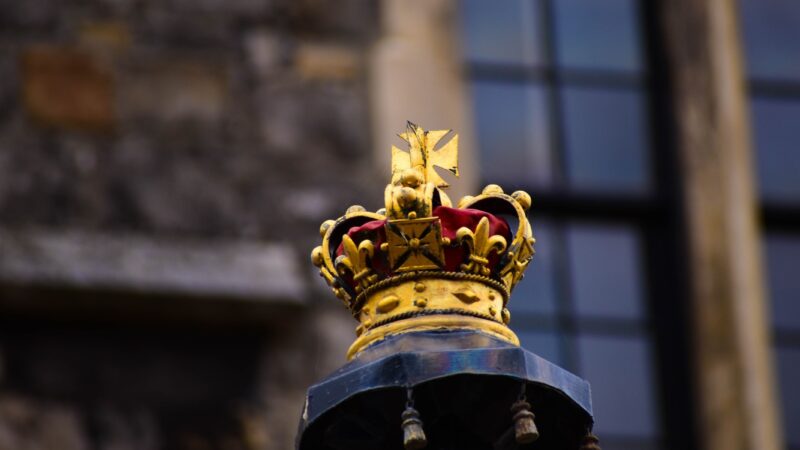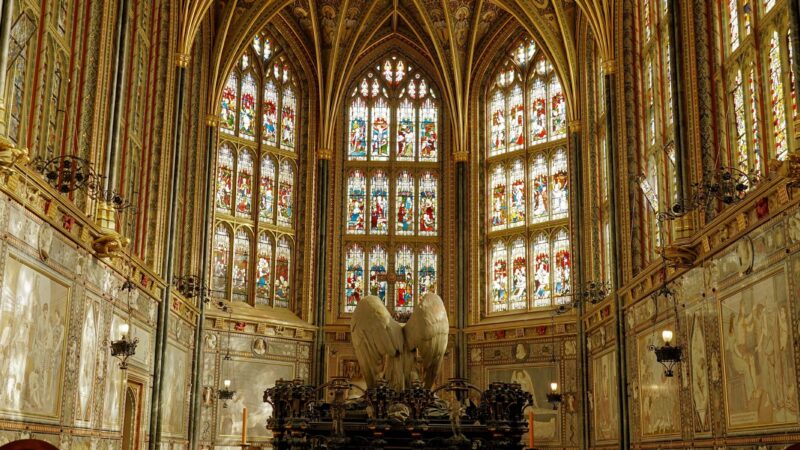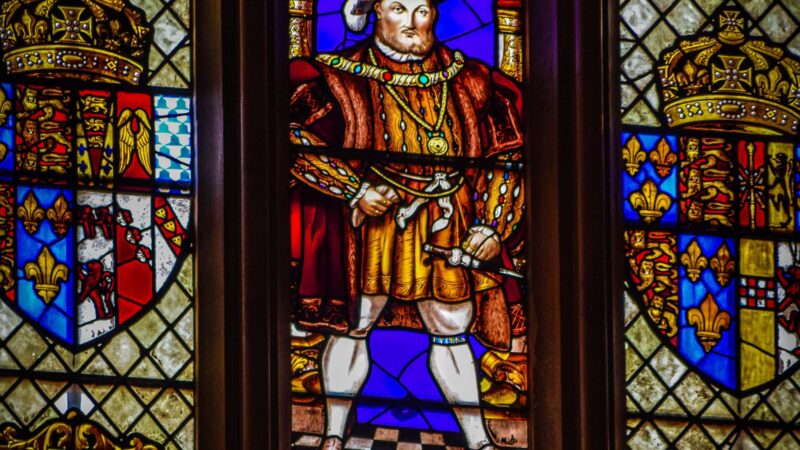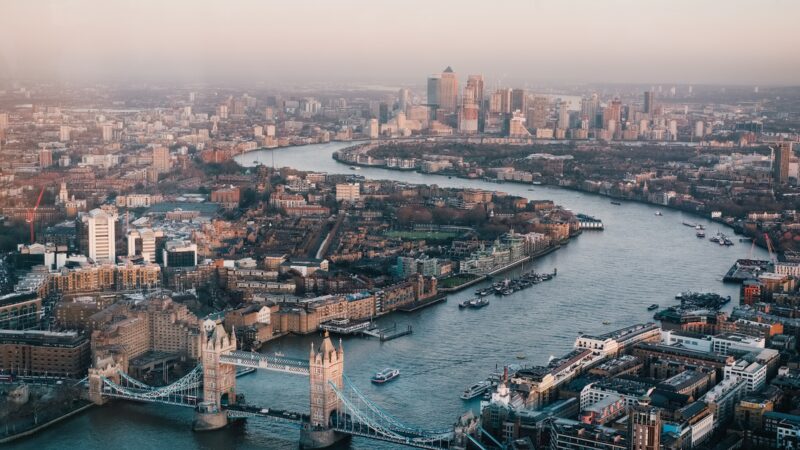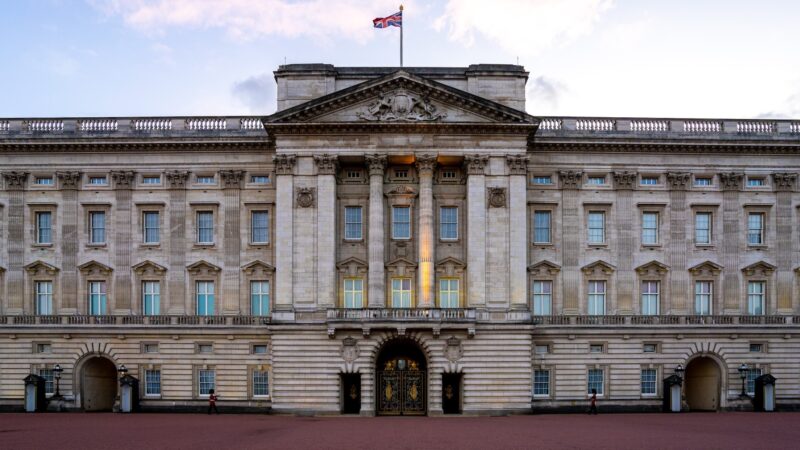Charles’ Personal Rule: A Stable or Tyrannised England?
Within discussions of England’s political history, the most famous moments are known and widely discussed – the Magna Carta of 1215, and the Cromwell Protectorate of the 1650s spring immediately to mind. However, the renewal of an almost-mediaeval style of monarchical absolutism, in the 1630s, has proven both overlooked and underappreciated as a period of historical interest. Indeed, Charles I’s rule without Parliament has faced an identity crisis amongst more recent historians – was it a period of stability or tyranny for the English people?
If we are to consider the Personal Rule as a period in enough depth, the years leading up to the dissolution of Charles’ Third Parliament (in 1629) must first be understood. Succeeding his father James I in 1625, Charles’ personal style and vision of monarchy would prove to be incompatible with the expectations of his Parliaments. Having enjoyed a strained but respectful relationship with James, MPs would come to question Charles’ authority and choice of advisors in the coming years. Indeed, it was Charles’ stubborn adherence to the Divine Right of King’s doctrine, writing once that “Princes are not bound to give account of their actions but to God alone”, that meant that he believed compromise to be defeat, and any pushback against him to be a sign of disloyalty.
Constitutional tensions between King and Parliament proved the most contentious of all issues, especially regarding the King’s role in taxation. At war with Spain between 1625 – 1630 (and having just dissolved the 1626 Parliament), Charles was lacking in funds. Thus, he turned to non-parliamentary forms of revenue, notably the Forced Loan (1627) – declaring a ‘national emergency’, Charles demanded that his subjects all make a gift of money to the Crown. Whilst theoretically optional, those who refused to pay were often imprisoned; a notable example would be the Five Knights’ Case, in which five knights were imprisoned for refusing to pay (with the court ruling in Charles’ favour). This would eventually culminate in Charles’ signing of the Petition of Right (1628), which protected the people from non-Parliamentary taxation, as well as other controversial powers that Charles chose to exercise, such as arrest without charge, martial law, and the billeting of troops.
The role played by George Villiers, the Duke of Buckingham, was also another major factor that contributed to Charles’ eventual dissolution of Parliaments in 1629. Having dominated the court of Charles’ father, Buckingham came to enjoy a similar level of unrivalled influence over Charles as his de facto Foreign Minister. It was, however, in his position as Lord High Admiral, that he further worsened Charles’ already-negative view of Parliament. Responsible for both major foreign policy disasters of Charles’ early reign (Cadiz in 1625, and La Rochelle in 1627, both of which achieved nothing and killed 5 to 10,000 men), he was deemed by the MP Edward Coke to be “the cause of all our miseries”. The duke’s influence over Charles’ religious views also proved highly controversial – at a time when anti-Calvinism was rising, with critics such as Richard Montague and his pamphlets, Buckingham encouraged the King to continue his support of the leading anti-Calvinist of the time, William Laud, at the York House Conference in 1626.
Heavily dependent on the counsel of Villiers until his assassination in 1628, it was in fact, Parliament’s threat to impeach the Duke, that encouraged Charles to agree to the Petition of Right. Fundamentally, Buckingham’s poor decision-making, in the end, meant serious criticism from MPs, and a King who believed this criticism to be Parliament overstepping the mark and questioning his choice of personnel.
Fundamentally by 1629, Charles viewed Parliament as a method of restricting his God-given powers, one that had attacked his decisions, provided him with essentially no subsidies, and forced him to accept the Petition of Right. Writing years later in 1635, the King claimed that he would do “anything to avoid having another Parliament”. Amongst historians, the significance of this final dissolution is fiercely debated: some, such as Angela Anderson, don’t see the move as unusual; there were 7 years for example, between two of James’ Parliaments, 1614 and 1621 – at this point in English history, “Parliaments were not an essential part of daily government”. On the other hand, figures like Jonathan Scott viewed the principle of governing without Parliament officially as new – indeed, the decision was made official by a royal proclamation.
Now free of Parliamentary constraints, the first major issue Charles faced was his lack of funds. Lacking the usual taxation method and in desperate need of upgrading the English navy, the King revived ancient taxes and levies, the most notable being Ship Money. Originally a tax levied on coastal towns during wartime (to fund the building of fleets), Charles extended it to inland counties in 1635 and made it an annual tax in 1636. This inclusion of inland towns was construed as a new tax without parliamentary authorisation. For the nobility, Charles revived the Forest Laws (demanding landowners produce the deeds to their lands), as well as fines for breaching building regulations.
The public response to these new fiscal expedients was one of broad annoyance, but general compliance. Indeed, between 1634 and 1638, 90% of the expected Ship Money revenue was collected, providing the King with over £1m in annual revenue by 1637. Despite this, the Earl of Warwick questioned its legality, and the clerical leadership referred to all of Charles’ tactics as “cruel, unjust and tyrannical taxes upon his subjects”.However, the most notable case of opposition to Ship Money was the John Hampden case in 1637. A gentleman who refused to pay, Hampden argued that England wasn’t at war and that Ship Money writs gave subjects seven months to pay, enough time for Charles to call a new Parliament. Despite the Crown winning the case, it inspired greater widespread opposition to Ship Money, such as the 1639-40 ‘tax revolt’, involving non-cooperation from both citizens and tax officials. Opposing this view, however, stands Sharpe, who claimed that “before 1637, there is little evidence at least, that its [Ship Money’s] legality was widely questioned, and some suggestion that it was becoming more accepted”.
In terms of his religious views, both personally and his wider visions for the country, Charles had been an open supporter of Arminianism from as early as the mid-1620s – a movement within Protestantism that staunchly rejected the Calvinist teaching of predestination. As a result, the sweeping changes to English worship and Church government that the Personal Rule would oversee were unsurprisingly extremely controversial amongst his Calvinist subjects, in all areas of the kingdom. In considering Charles’ religious aims and their consequences, we must focus on the impact of one man, in particular, William Laud. Having given a sermon at the opening of Charles’ first Parliament in 1625, Laud spent the next near-decade climbing the ranks of the ecclesiastical ladder; he was made Bishop of Bath and Wells in 1626, of London in 1629, and eventually Archbishop of Canterbury in 1633. Now 60 years old, Laud was unwilling to compromise any of his planned reforms to the Church.
The overarching theme of Laudian reforms was ‘the Beauty of Holiness’, which had the aim of making churches beautiful and almost lavish places of worship (Calvinist churches, by contrast, were mostly plain, to not detract from worship). This was achieved through the restoration of stained-glass windows, statues, and carvings. Additionally, railings were added around altars, and priests began wearing vestments and bowing at the name of Jesus. However, the most controversial change to the church interior proved to be the communion table, which was moved from the middle of the room to by the wall at the East end, which was “seen to be utterly offensive by most English Protestants as, along with Laudian ceremonialism generally, it represented a substantial step towards Catholicism. The whole programme was seen as a popish plot”.
Under Laud, the power and influence wielded by the Church also increased significantly – a clear example would be the fact that Church courts were granted greater autonomy. Additionally, Church leaders became evermore present as ministers and officials within Charles’ government, with the Bishop of London, William Juxon, appointed as Lord Treasurer and First Lord of the Admiralty in 1636. Additionally, despite already having the full backing of the Crown, Laud was not one to accept dissent or criticism and, although the severity of his actions has been exaggerated by recent historians, they can be identified as being ruthless at times. The clearest example would be the torture and imprisonment of his most vocal critics in 1637: the religious radicals William Prynne, Henry Burton and John Bastwick.
However successful Laudian reforms may have been in England (and that statement is very much debatable), Laud’s attempt to enforce uniformity on the Church of Scotland in the latter half of the 1630s would see the emergence of a united Scottish opposition against Charles, and eventually armed conflict with the King, in the form of the Bishops’ Wars (1639 and 1640). This road to war was sparked by Charles’ introduction of a new Prayer Book in 1637, aimed at making English and Scottish religious practices more similar – this would prove beyond disastrous. Riots broke out across Edinburgh, the most notable being in St Giles’ Cathedral (where the bishop had to protect himself by pointing loaded pistols at the furious congregation. This displeasure culminated in the National Covenant in 1638 – a declaration of allegiance which bound together Scottish nationalism with the Calvinist faith.
Attempting to draw conclusions about Laudian religious reforms very many hinges on the fact that, in terms of his and Charles’ objectives, they very much overhauled the Calvinist systems of worship, the role of priests, and Church government, and the physical appearance of churches. The response from the public, however, ranging from silent resentment to full-scale war, displays how damaging these reforms were to Charles’ relationship with his subjects – coupled with the influence wielded by his wife Henrietta Maria, public fears about Catholicism very much damaged Charles’ image, and meant religion during the Personal Rule was arguably the most intense issue of the period. In judging Laud in the modern-day, the historical debate has been split: certain historians focus on his radical uprooting of the established system, with Patrick Collinson suggesting the Archbishop to have been “the greatest calamity ever visited upon by the Church of England”, whereas others view Laud and Charles as pursuing the entirely reasonable, a more orderly and uniform church.
Much like how the Personal Rule’s religious direction was very much defined by one individual, so was its political one, by Thomas Wentworth, later known as the Earl of Strafford. Serving as the Lord Deputy of Ireland from 1632 to 1640, he set out with the aims of ‘civilising’ the Irish population, increasing revenue for the Crown, and challenging Irish titles to land – all under the umbrella term of ‘Thorough’, which aspired to concentrate power, crackdown on oppositions figures, and essentially preserve the absolutist nature of Charles’ rule during the 1630s.
Regarding Wentworth’s aims toward Irish Catholics, Ian Gentles’ 2007 work The English Revolution and the Wars in the Three Kingdoms argues the friendships Wentworth maintained with Laud and also with John Bramhall, the Bishop of Derry, “were a sign of his determination to Protestantize and Anglicize Ireland”.Devoted to a Catholic crackdown as soon as he reached the shores, Wentworth would subsequently refuse to recognise the legitimacy of Catholic officeholders in 1634, and managed to reduce Catholic representation in Ireland’s Parliament, by a third between 1634 and 1640 – this, at a time where Catholics made up 90% of the country’s population. An even clearer indication of Wentworth’s hostility to Catholicism was his aggressive policy of land confiscation. Challenging Catholic property rights in Galway, Kilkenny and other counties, Wentworth would bully juries into returning a King-favourable verdict, and even those Catholics who were granted their land back (albeit only three-quarters), were now required to make regular payments to the Crown. Wentworth’s enforcing of Charles’ religious priorities was further evidenced by his reaction to those in Ireland who signed the National Covenant. The accused were hauled before the Court of Castle Chamber (Ireland’s equivalent to the Star Chamber) and forced to renounce ‘their abominable Covenant’ as ‘seditious and traitorous’.
Seemingly in keeping with figures from the Personal Rule, Wentworth was notably tyrannical in his governing style. Sir Piers Crosby and Lord Esmonde were convicted by the Court of Castle Chamber for libel for accusing Wentworth of being involved in the death of Esmond’s relative, and Lord Valentina was sentenced to death for “mutiny” – in fact, he’d merely insulted the Earl.
In considering Wentworth as a political figure, it is very easy to view him as merely another tyrannical brute, carrying out the orders of his King. Indeed, his time as Charles’ personal advisor (1639 onwards) certainly supports this view: he once told Charles that he was “loose and absolved from all rules of government” and was quick to advocate war with the Scots. However, Wentworth also saw great successes during his time in Ireland; he raised Crown revenue substantially by taking back Church lands and purged the Irish Sea of pirates. Fundamentally, by the time of his execution in May 1641, Wentworth possessed a reputation amongst Parliamentarians very much like that of the Duke of Buckingham; both men came to wield tremendous influence over Charles, as well as great offices and positions.
In the areas considered thus far, it appears opposition to the Personal Rule to have been a rare occurrence, especially in any organised or effective form. Indeed, Durston claims the decade of the 1630s to have seen “few overt signs of domestic conflict or crisis”, viewing the period as altogether stable and prosperous. However, whilst certainly limited, the small amount of resistance can be viewed as representing a far more widespread feeling of resentment amongst the English populace. Whilst many actions received little pushback from the masses, the gentry, much of whom were becoming increasingly disaffected with the Personal Rule’s direction, gathered in opposition. Most notably, John Pym, the Earl of Warwick, and other figures, collaborated with the Scots to launch a dissident propaganda campaign criticising the King, as well as encouraging local opposition (which saw some success, such as the mobilisation of the Yorkshire militia). Charles’ effective use of the Star Chamber, however, ensured opponents were swiftly dealt with, usually those who presented vocal opposition to royal decisions.
The historiographical debate surrounding the Personal Rule, and the Caroline Era more broadly, was and continues to be dominated by Whig historians, who view Charles as foolish, malicious, and power-hungry, and his rule without Parliament as destabilising, tyrannical and a threat to the people of England. A key proponent of this view is S.R. Gardiner who, believing the King to have been ‘duplicitous and delusional’, coined an alternative term to ‘Personal Rule’ – the Eleven Years’ Tyranny. This position has survived into the latter half of the 20th Century, with Charles having been labelled by Barry Coward as “the most incompetent monarch of England since Henry VI”, and by Ronald Hutton, as “the worst king we have had since the Middle Ages”.
Recent decades have seen, however, the attempted rehabilitation of Charles’ image by Revisionist historians, the most well-known, as well as most controversial, being Kevin Sharpe. Responsible for the landmark study of the period, The Personal Rule of Charles I, published in 1992, Sharpe came to be Charles’ most staunch modern defender. In his view, the 1630s, far from a period of tyrannical oppression and public rebellion, were a decade of “peace and reformation”. During Charles’ time as an absolute monarch, his lack of Parliamentary limits and regulations allowed him to achieve a great deal: Ship Money saw the Navy’s numbers strengthened, Laudian reforms mean a more ordered and regulated national church, and Wentworth dramatically raised Irish revenue for the Crown – all this, and much more, without any real organised or overt opposition figures or movements.
Understandably, the Sharpian view has received significant pushback, primarily for taking an overly optimistic view and selectively mentioning the Personal Rule’s positives. Encapsulating this criticism, David Smith wrote in 1998 that Sharpe’s “massively researched and beautifully sustained panorama of England during the 1630s … almost certainly underestimates the level of latent tension that existed by the end of the decade”.This has been built on by figures like Esther Cope: “while few explicitly challenged the government of Charles I on constitutional grounds, a greater number had experiences that made them anxious about the security of their heritage”.
It is worth noting however that, a year before his death in 2011, Sharpe came to consider the views of his fellow historians, acknowledging Charles’ lack of political understanding to have endangered the monarchy, and that, more seriously by the end of the 1630s, the Personal Rule was indeed facing mounting and undeniable criticism, from both Charles’ court and the public.
Sharpe’s unpopular perspective has been built upon by other historians, such as Mark Kishlansky. Publishing Charles I: An Abbreviated Life in 2014, Kishlansky viewed parliamentarian propaganda of the 1640s, as well as a consistent smear from historians over the centuries as having resulted in Charles being viewed “as an idiot at best and a tyrant at worst”, labelling him as “the most despised monarch in Britain’s historical memory”. Charles however, faced no real preparation for the throne – it was always his older brother Henry that was the heir apparent. Additionally, once King, Charles’ Parliaments were stubborn and uncooperative – by refusing to provide him with the necessary funding, for example, they forced Charles to enact the Forced Loan. Kishlansky does, however, concede the damage caused by Charles’ unmoving belief in the Divine Right of Kings: “he banked too heavily on the sheer force of majesty”.
Charles’ personality, ideology and early life fundamentally meant an icy relationship with Parliament, which grew into mutual distrust and the eventual dissolution. Fundamentally, the period of Personal Rule remains a highly debated topic within academic circles, with the recent arrival of Revisionism posing a challenge to the long-established negative view of the Caroline Era. Whether or not the King’s financial, religious, and political actions were met with a discontented populace or outright opposition, it remains the case that the identity crisis facing the period, that between tyranny or stability remains yet to be conclusively put to rest.

